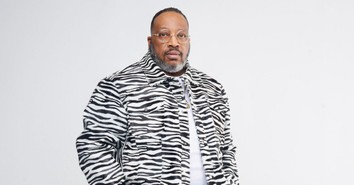Christian Identity in the U.S. Holds Steady after Years of Decline, Pew Finds

Christianity in America may no longer be in decline, according to a new Pew Research Center survey that also reveals hopeful signs for the future of the faith across the nation. Pew’s latest Religious Landscape Studies survey shows that 62 percent of Americans identify as Christian, a number that is slightly more than 2022 (60) and just one point lower than 2020 (64). The stability is a welcome sign for the nation’s church leaders, who have watched Christian identity in Pew surveys fall from 78 percent in 2007, to 71 percent in 2014 and then roughly another 10 points to its present level.
“After many years of steady decline, the share of Americans who identify as Christians shows signs of leveling off,” a report summary said.
The Religious Landscape Studies survey includes interviews with 39,000 Americans and is the largest survey Pew conducts, providing comprehensive data not collected by the U.S. Census.
“It’s striking to have observed this recent period of stability in American religion after that long period of decline,” said Pew’s Gregory Smith, one of the study’s co-authors. “One thing we can’t know for sure is whether these short-term signs of stabilization will prove to be a lasting change in the country’s religious trajectory.”
A total of 40 percent of U.S. adults say they’re Protestant, while 19 percent identify as Catholic, Pew said. Other groups, including the Greek and Russian Orthodox Churches, the Church of Jesus Christ of Latter-day Saints, Jehovah’s Witnesses and others total about 3 percent of the population, Pew found.
But despite the stabilization, Christianity may face another dip in the future. That’s because the youngest Americans in the survey “remain far less religious than older adults,” the report found.
Still, the report included some good news for Christianity’s future in the nation. For example, recent Pew surveys have shown Christian identity potentially growing among Americans born between 2000 and 2006, with 45 percent calling themselves Christian a year ago but 51 percent doing so today. A similar uptick was seen among Americans ages 34-44.
Additionally:
-- 86 percent of Americans believe people have a soul or spirit in addition to their physical body.
-- 83 percent believe in God or a universal spirit.
-- 79 percent believe there is something spiritual beyond the natural world.
Meanwhile, the share of Americans who don’t identify with any religion -- the “nones” -- has also plateaued after years of growth. This group, 29 percent of the population, includes Americans who identify as atheists, agnostics or “nothing in particular” when asked their religion.
Photo Credit: ©Getty Images/Pcess609
Michael Foust has covered the intersection of faith and news for 20 years. His stories have appeared in Baptist Press, Christianity Today, The Christian Post, the Leaf-Chronicle, the Toronto Star and the Knoxville News-Sentinel.
Listen to Michael's Podcast! He is the host of Crosswalk Talk, a podcast where he talks with Christian movie stars, musicians, directors, and more. Hear how famous Christian figures keep their faith a priority in Hollywood and discover the best Christian movies, books, television, and other entertainment. You can find Crosswalk Talk on LifeAudio.com, or subscribe on Apple or Spotify so you never miss an interview that will be sure to encourage your faith.
Originally published February 27, 2025.





